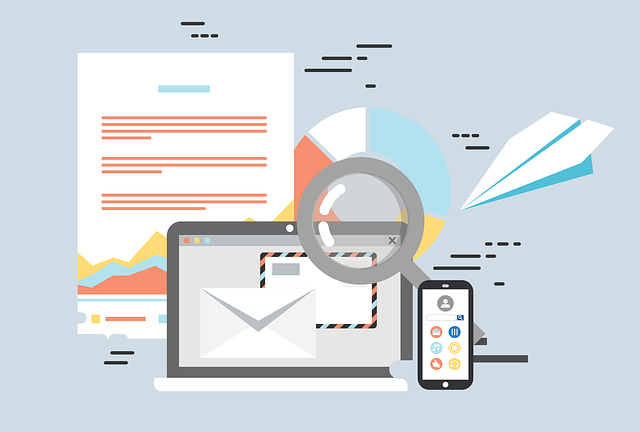Artificial Intelligence (AI) is transforming vehicle repair services through AI consulting, automating tasks like issue diagnosis and appointment scheduling, boosting efficiency, reducing turnaround times, and optimizing inventory management. Repair shops embracing AI gain a competitive edge by identifying automation opportunities, engaging with specialized consultants, and integrating technologies like predictive analytics and chatbots. Success measurement through KPIs, such as website traffic, lead generation, customer retention, and satisfaction, drives data-informed improvements and business growth in AI consulting for operational improvement in repair shops.
In today’s digital era, AI marketing strategies are transforming industries, and vehicle repair services are no exception. This article explores how artificial intelligence (AI) can revolutionize operations within repair shops, enhancing efficiency and customer satisfaction. From streamlining processes to offering personalized experiences, AI consulting is a game-changer. We’ll guide you through practical steps for implementing these strategies, focusing on operational improvement in repair shops. By the end, understand the key performance indicators for evaluating AI’s impact on your business.
- Understanding AI's Role in Vehicle Repair: How AI Can Streamline Operations and Improve Efficiency
- Implementing AI Strategies: Practical Steps for Repair Shops to Embrace AI Consulting
- Measuring Success: Key Performance Indicators for Evaluating the Impact of AI Integration in Repair Services
Understanding AI's Role in Vehicle Repair: How AI Can Streamline Operations and Improve Efficiency

Artificial Intelligence (AI) is transforming various industries, and vehicle repair services are no exception. By leveraging AI technologies, repair shops can streamline their operations, enhance efficiency, and deliver better customer experiences. AI consulting for operational improvement in repair shops involves implementing intelligent systems to automate repetitive tasks, such as diagnosing issues using machine learning algorithms or scheduling appointments based on historical data.
These advancements enable mechanics to focus on more complex repairs, reducing turnaround times and potential errors. Additionally, AI can optimize inventory management by forecasting parts requirements, minimizing waste, and ensuring that essential tools and supplies are always available. This integration of AI in vehicle repair not only improves productivity but also contributes to cost reduction and customer satisfaction.
Implementing AI Strategies: Practical Steps for Repair Shops to Embrace AI Consulting

Many vehicle repair shops are recognizing the potential of Artificial Intelligence (AI) to transform their operations and gain a competitive edge. Implementing AI strategies is no longer a futuristic concept but an essential step for repair businesses to thrive in today’s market. The first practical step is to conduct a comprehensive assessment of current shop processes, identifying pain points and areas where automation can bring significant improvements. This involves analyzing tasks that are time-consuming, prone to human error, or require repetitive actions.
Once these areas are pinpointed, repair shops can begin exploring AI solutions tailored to their specific needs. Engaging with AI consultants who specialize in automotive repair is highly beneficial. These experts can guide the shop through the process of selecting and integrating suitable AI technologies, such as predictive analytics for maintenance forecasting or natural language processing chatbots for customer support. By following these practical steps, repair shops can effectively leverage AI consulting for operational improvement, enhancing efficiency, customer satisfaction, and overall business growth.
Measuring Success: Key Performance Indicators for Evaluating the Impact of AI Integration in Repair Services

Measuring success is paramount when implementing AI marketing strategies for vehicle repair services, as it allows businesses to assess the effectiveness of their operations and customer engagement. Key Performance Indicators (KPIs) tailored for evaluating AI integration in repair shops should focus on several key areas. Firstly, tracking website traffic and conversion rates can reveal how well AI-driven content and personalized recommendations are attracting and converting potential customers.
Secondly, monitoring lead generation and sales pipelines will provide insights into the direct impact of AI marketing campaigns on business growth. Additionally, analyzing customer retention rates and satisfaction levels is crucial to understanding whether AI-optimized services enhance customer loyalty and experience. By closely examining these KPIs, repair shops can make data-driven decisions, fine-tune their AI consulting strategies, and ultimately achieve operational improvement through effective marketing integration.
AI has the potential to revolutionize vehicle repair services by enhancing efficiency and streamlining operations. Through implementing practical AI strategies, such as predictive maintenance and automated diagnostics, repair shops can significantly improve their performance. By embracing AI consulting, these businesses can identify areas for optimization and make data-driven decisions. Measuring success through key performance indicators ensures that the integration of AI brings tangible benefits, ultimately elevating the quality and speed of vehicle repair services.
